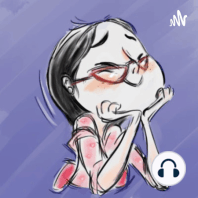8 min listen

Episode 77 - How to use Conditional Forms (tara, to, ba, nara)
Episode 77 - How to use Conditional Forms (tara, to, ba, nara)
ratings:
Length:
10 minutes
Released:
Feb 23, 2022
Format:
Podcast episode
Description
- Check my video for more details! -
https://www.youtube.com/watch?v=kVxs9n2yUyY
==========================================================
…と: Constant Results and Actual Conditions
The function is to express constant results. The conjugation is just to attach the plain (dictionary) form to と. When you use nouns and na-adjectives, you need to attach だ like 春だと. By constant results, we mean that it’s an unchanged fact, when you do A, aways B happens. You can use this for natural phenomenons, habitual actions, programmed actions, etc.
雨が降ると涼しくなります。
ame ga furu to suzushiku narimasu.
If [it] rains, [it] will get cool.
まっすぐ行くと、郵便局があります。
massugu iku to yuubinkyoku ga arimasu.
If you go straight there is a post office.
…ば: Hypothetical Conditions
The function is to express hypothetical conditions like if a hypothesis comes true, X will happen. This indicate that you place priority on the conditional clauses rather than the main clauses.
薬を飲めば治ると思います。
kusuri o nomeba naoru to omoimasu
[I] think [I] will recover if [I] take the medicine.
夏になれば、海に行きたいです。
natsu ni nareba umi ni ikitai desu
I want to go to the beach when it's summer
…たら: One-Time Results
The function is to express a one-time or a particular result. This has the widest usage and thus we can say たら is most common to express conditionals. The conjugation is to attach ら to the ta-form. By using this, you can express both actual and hypothetical condition.
夏が来たら日本に行きます。
natsu ga kitara nihon ni ikimasu.
If the summer comes, [I] will go to Japan.
薬を飲んだら治ると思います。
kusuri o nondara naoru to omoimasu
[I] think [I] will recover if [I] take the medicine.
…なら: Contextual Conditions
The function is to respond to someone in a given context. Regarding the other conditional words, you can set a context by yourself. However, you can use …なら only when given a context. The conjugation is just to attach なら to the plain (dictionary) form or the ta-form, which is the only one case that you can attach conditional words to the two forms.
日本語を話すことができる人がいますか?
nihongo o hanasu koto ga dekiru hito ga imasu ka?
Is there a person who can speak Japanese?
日本語ならトムさんが話すことができますよ!
nihongo nara tomu san ga hanasu koto ga dekimasu yo!
If [you’re talking about] Japanese, Tom can speak [it].
日本語の本を読みたいです。
nihongo no hon o yomitai desu
[I] want to try to read Japanese book.
読みたいなら私のを貸しましょうか?
yomitai nara watashi no o kashimashou ka?
If [you] want to read, shall [I] lend mine?
===============================================
Check out my Youtube Channel!
Wanna support me?
===============================================
https://www.youtube.com/watch?v=kVxs9n2yUyY
==========================================================
…と: Constant Results and Actual Conditions
The function is to express constant results. The conjugation is just to attach the plain (dictionary) form to と. When you use nouns and na-adjectives, you need to attach だ like 春だと. By constant results, we mean that it’s an unchanged fact, when you do A, aways B happens. You can use this for natural phenomenons, habitual actions, programmed actions, etc.
雨が降ると涼しくなります。
ame ga furu to suzushiku narimasu.
If [it] rains, [it] will get cool.
まっすぐ行くと、郵便局があります。
massugu iku to yuubinkyoku ga arimasu.
If you go straight there is a post office.
…ば: Hypothetical Conditions
The function is to express hypothetical conditions like if a hypothesis comes true, X will happen. This indicate that you place priority on the conditional clauses rather than the main clauses.
薬を飲めば治ると思います。
kusuri o nomeba naoru to omoimasu
[I] think [I] will recover if [I] take the medicine.
夏になれば、海に行きたいです。
natsu ni nareba umi ni ikitai desu
I want to go to the beach when it's summer
…たら: One-Time Results
The function is to express a one-time or a particular result. This has the widest usage and thus we can say たら is most common to express conditionals. The conjugation is to attach ら to the ta-form. By using this, you can express both actual and hypothetical condition.
夏が来たら日本に行きます。
natsu ga kitara nihon ni ikimasu.
If the summer comes, [I] will go to Japan.
薬を飲んだら治ると思います。
kusuri o nondara naoru to omoimasu
[I] think [I] will recover if [I] take the medicine.
…なら: Contextual Conditions
The function is to respond to someone in a given context. Regarding the other conditional words, you can set a context by yourself. However, you can use …なら only when given a context. The conjugation is just to attach なら to the plain (dictionary) form or the ta-form, which is the only one case that you can attach conditional words to the two forms.
日本語を話すことができる人がいますか?
nihongo o hanasu koto ga dekiru hito ga imasu ka?
Is there a person who can speak Japanese?
日本語ならトムさんが話すことができますよ!
nihongo nara tomu san ga hanasu koto ga dekimasu yo!
If [you’re talking about] Japanese, Tom can speak [it].
日本語の本を読みたいです。
nihongo no hon o yomitai desu
[I] want to try to read Japanese book.
読みたいなら私のを貸しましょうか?
yomitai nara watashi no o kashimashou ka?
If [you] want to read, shall [I] lend mine?
===============================================
Check out my Youtube Channel!
Wanna support me?
===============================================
Released:
Feb 23, 2022
Format:
Podcast episode
Titles in the series (100)
Episode 25 - What kind of "donna" and adverbs (sukoshi, totemo, amari...) by Learn Japanese with Masa sensei!